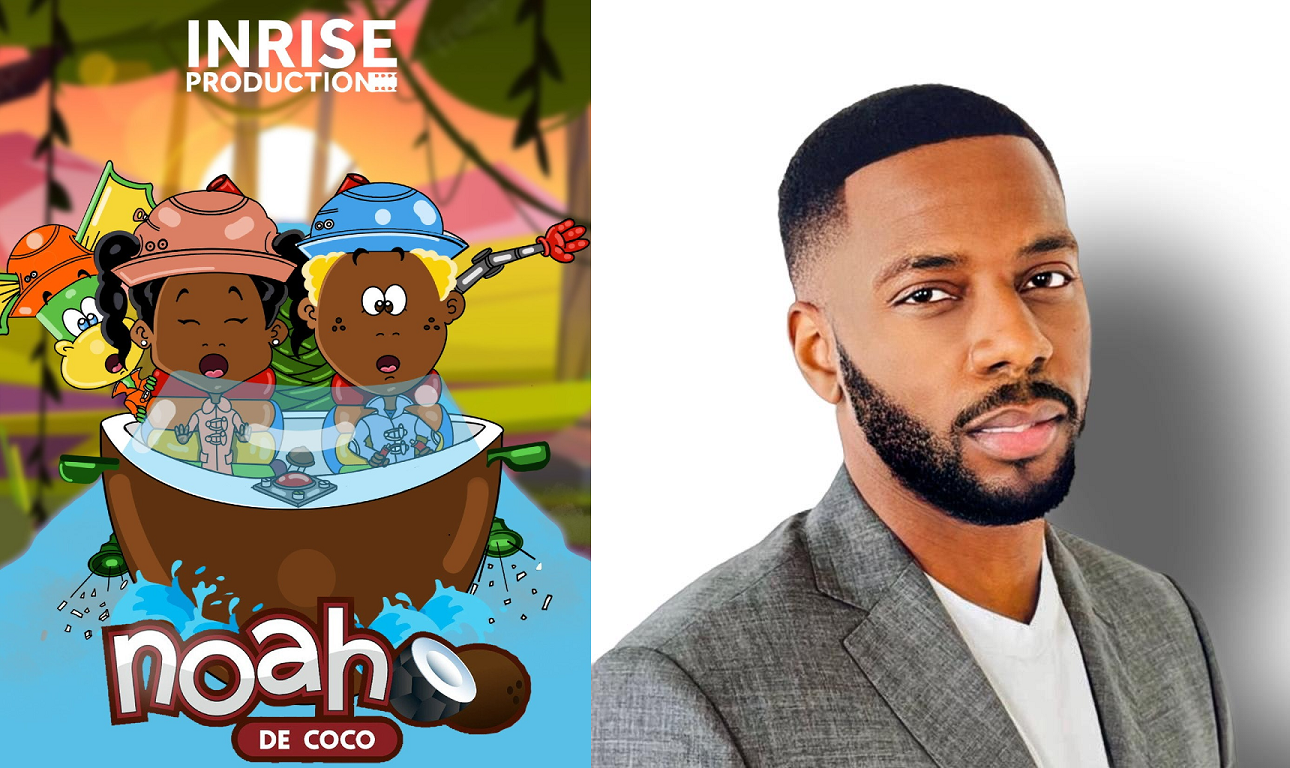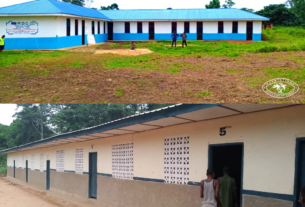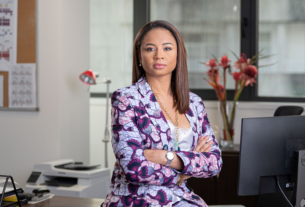Entrepreneur and founder of the Kinshasa-based production company “Inrise Production”, Alain Okan Mboma is the author of the cartoon “Noah de Coco”, conceived entirely in the Democratic Republic of Congo, and soon to be broadcast on TV5Monde, Gully Africa and Trace TV. The aim is to use a cartoon character to introduce children around the world to the greatness of ancient African civilizations, and to show that the continent can once again become a great power.
Could you please introduce yourself?
I’m Alain Okan Mboma, a cartoon producer via my production company “Inrise Production”, based in Kinshasa, where most of my operational team is based. I decided to base my company in Kinshasa to highlight local work and to show that we are capable of doing things ourselves and for ourselves.
I hold a Master’s degree in digital marketing from the Institut des hautes études économiques et commerciales (INSEEC). For 3 years, I worked for the television channel Trace TV in digital marketing and new business. I then moved on to Africa 24, where I was in charge of creating the music channel. In the meantime, I had already started setting up “Inrise Production”, which I launched 2 years ago.
What are Inrise Production’s activities?
We have two types of activity. The first is the creation of cartoons: script, storyboard and the animation itself. Once we’ve created the cartoons, we sell them to TV channels for broadcast.
The second activity concerns our digital division, which is aimed at private clients: website creation, digital training for young people in Kinshasa, and the creation of applications and games.
What are Inrise Production’s notable achievements?
For the time being, we’re working more with private individuals, particularly on website creation. Our first major project will be the cartoon “Noah de Coco”, which we’ll be releasing in the next few months and which will be broadcast on TV5Monde, Gully Africa on the Canal+ bouquet and on Trace TV.
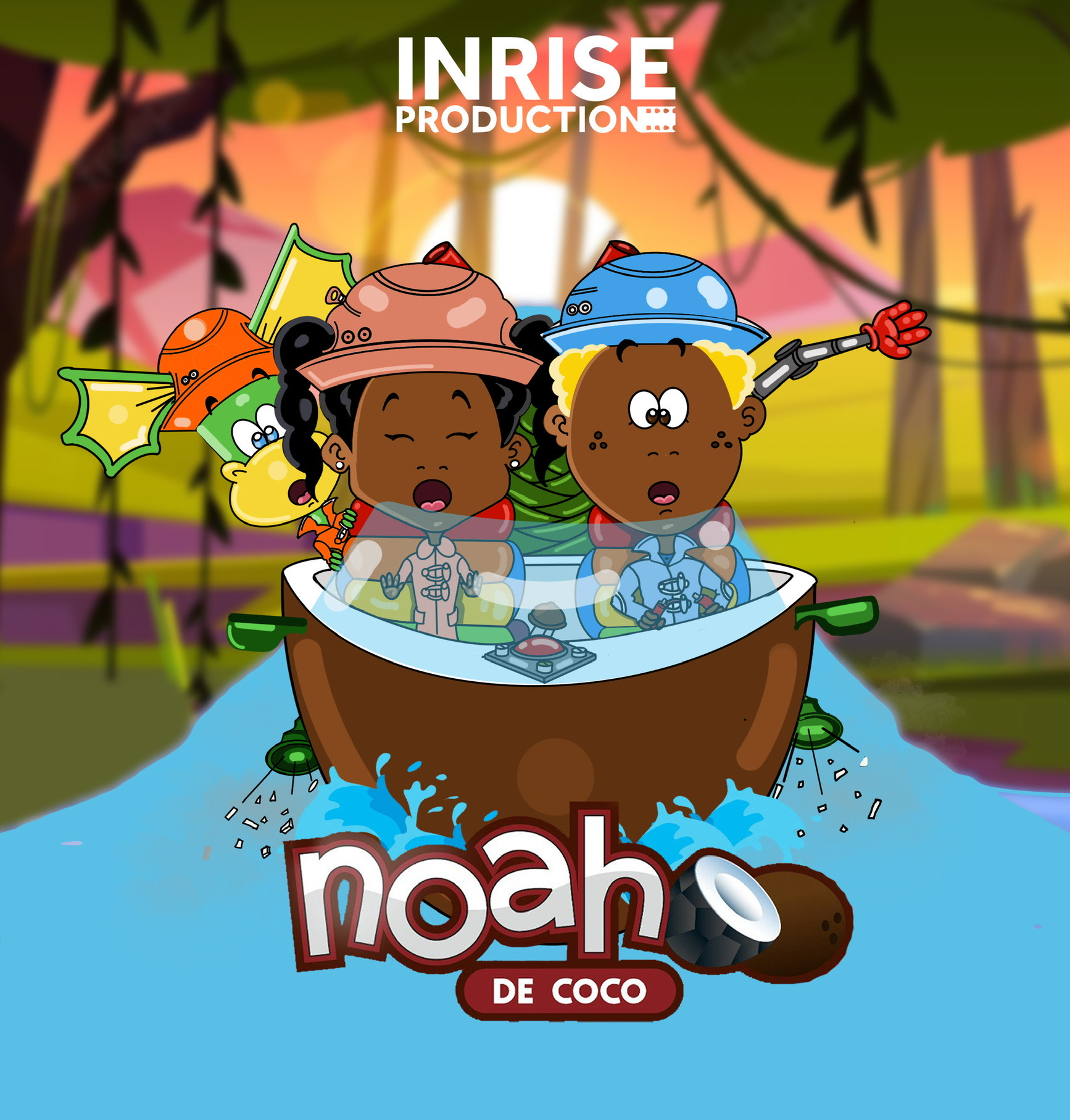
What is the story behind Noah de Coco?
Noah de Coco is the story of a character who tours African civilizations, ancestral kingdoms such as the Kongo kingdom, the Mali empire, the Fouta-toro kingdom in Senegal, and the Amhara of Ethiopia. Noah is going back into the past to show these great empires and kingdoms that once existed, so that we can teach our children and those around the world about what happened in Africa. It’s a theme that is rarely raised or highlighted. Even today, we don’t know much about our past.
How did you come up with the idea for this cartoon?
The idea for “Coco’s Noah” came to me about fifteen years ago. I wanted to create a little cartoon for my nieces and nephews, to keep them amused. That’s how I started scribbling Noah.
Also, when I was a kid, I got burned and spent a lot of time in hospital. The day the Mickey character came to visit the children in hospital made a big impression on me. I was two years old at the time, but I still remember it, as if it were yesterday. From that day on, I also felt the urge to create a hero who could reassure sick children. It was something I really wanted to do. 8 years ago, I organized an event at a hospital in Marseille with the Coco character Noah, whom I introduced to the children. Even though the cartoon hadn’t been released yet, I already had the character. I could see that it had made an impression on the children. All these reasons motivated me to “give birth” to Noah.
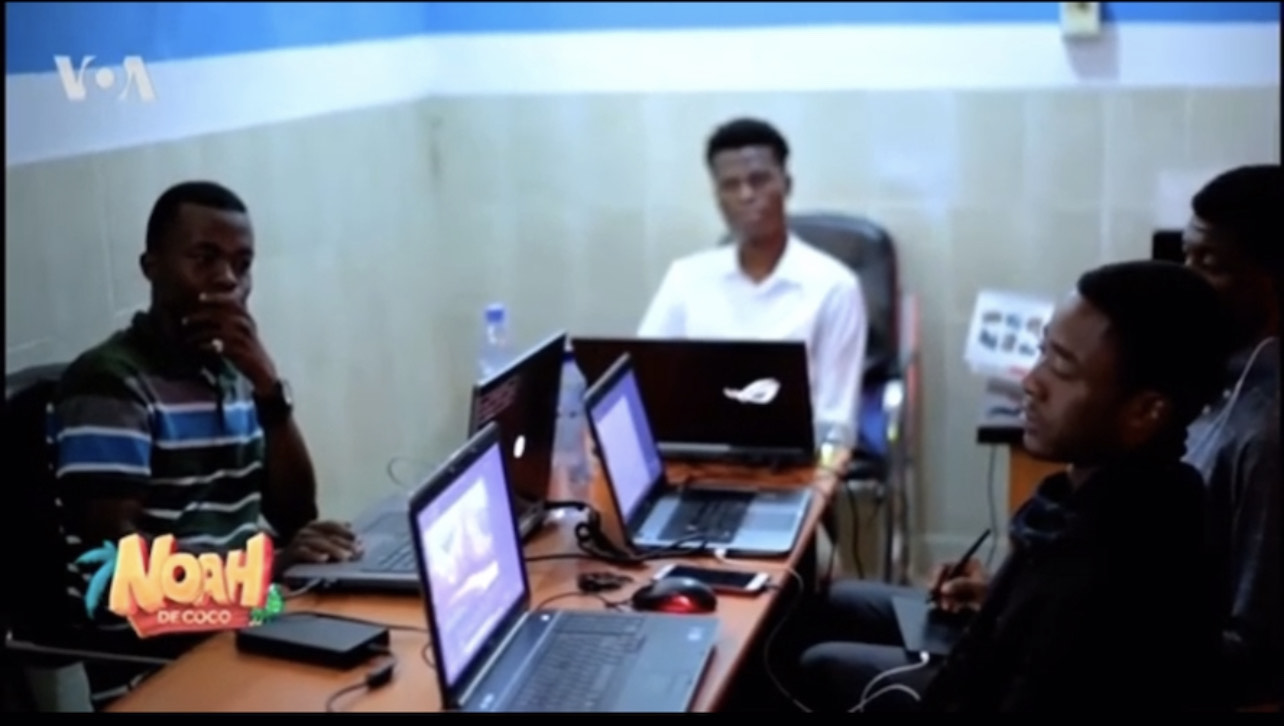
What messages would you like to get across?
My Master’s thesis was devoted to the ancestral kingdoms of Africa. But you can’t teach a child everything in ten minutes (the length of each episode in the series). But you can teach them notions and values. The main idea is to teach children that Africa was once great, that there were structured kingdoms long before colonization, that there were great kings and queens who played very important roles in the history of our continent. In each episode, I try to learn a few words of the language of the country in which the episode takes place. For example, learn to say hello or goodbye, or count to three. In each episode, I also try to show one or two historical figures. So, by showing that Africa was once great, we also want to say that it can become great again and regain all its letters of nobility. As I always say, it’s easier to build a child than to rebuild an adult.
How did you decide which kingdoms to present?
I signed a 10-episode contract with the TV channels. So, for the first season, I’m not in a position to present all the kingdoms of Africa. To this end, I’ve made sure that each area of Africa is represented. For example, the Monomotapa empire in Southern Africa (Zimbabwe and Mozambique); the Kongo kingdom in Central Africa; the Mali empire in West Africa and the Amharas in East Africa (Ethiopia). I hope to make several seasons of several episodes, and that Coco’s Noah can have the same success as a cartoon like “Dora the Explorer”. My ambition is to produce for Disney or Nickelodeon, to show that Congolese and African productions are capable of reaching the whole world. Today, people all over the world want to know what’s going on in Africa. Proof of this is the success of American film productions linked to Africa, such as “The Woman King” and “Black Panther”. In addition to Africa, Coco’s Noah could also tour other civilizations on other continents.
The series was shown at MIP Junior at the Cannes Film Festival…
Yes, I’m co-producing Noah de Coco with Trace TV, and the cartoon was presented at MIP Junior. MIP is a festival that brings together film and audiovisual professionals in Cannes. They come to find out about new projects in the sector, in order to promote them. So I was lucky enough to have Noah de Coco presented there.
You were recently a finalist in the “African Next Entrepreneurs” competition. What was this competition all about?
The competition was organized by the African Business Club (ABC), an institution based in France that promotes African and Afro-descendant entrepreneurs. Over 500 projects were selected. We then attended a training camp, before presenting our projects to a panel of experts. I presented Inrise Production and my vision. I was selected as one of the 11 finalists and came third in the competition. This allows me to benefit from special support and investment in my company.
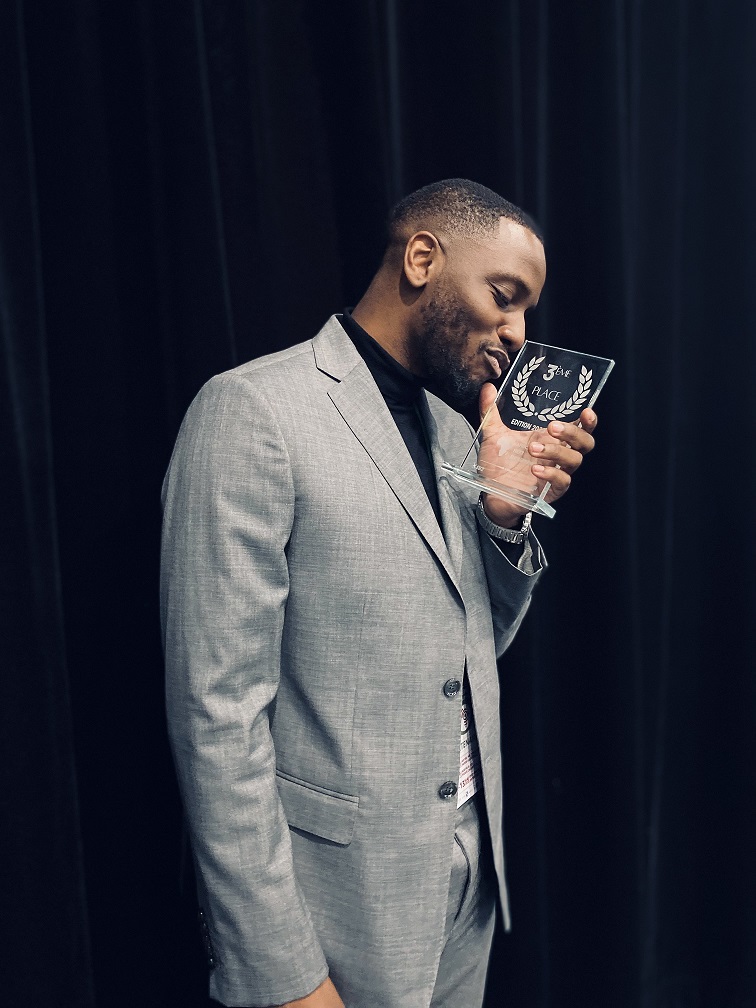
You were recently a finalist in the “African Next Entrepreneurs” competition. What was this competition all about?
The competition was organized by the African Business Club (ABC), an institution based in France that promotes African and Afro-descendant entrepreneurs. Over 500 projects were selected. We then attended a training camp, before presenting our projects to a panel of experts. I presented Inrise Production and my vision. I was selected as one of the 11 finalists and came third in the competition. This allows me to benefit from special support and investment in my company.
What’s next for Inrise Production?
We’re already working on three new productions in different formats. A short format, aimed at a more adult audience, with short, relevant messages and lots of humor. These are themes that will concern the lives of Africans around the world. We also have a format aimed at 10-15 year olds. In addition, we are continuing to develop our training center, to enable young people to train in the various digital professions.
